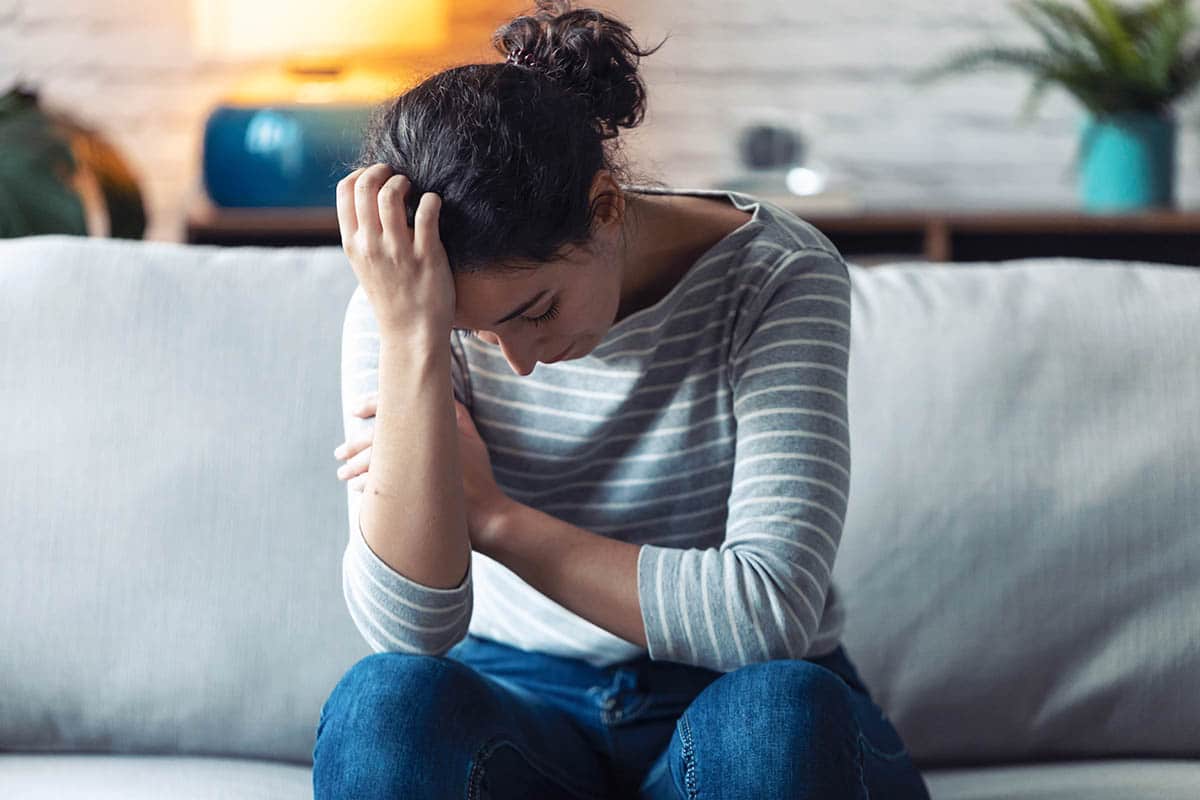Is my Drinking Causing my Anxiety?
Have you ever noticed your heart racing the morning after drinking, accompanied by an unexplained sense of dread? You’re not alone. Many people experience this phenomenon, known as “hangxiety” or the “Sunday Scaries.” It is a normal question to ask is my drinking causing my anxiety?
The relationship between alcohol and anxiety creates a complex dance in your brain. That glass of wine might feel like instant relief from your racing thoughts – alcohol’s initial effects can make you feel relaxed, sociable, and temporarily free from worry.
But this relief comes at a price. Your brain’s delicate chemical balance shifts during drinking, potentially triggering increased anxiety once the alcohol leaves your system. This effect can be particularly intense for people who:
- Already experience anxiety disorders
- Drink regularly or heavily
- Use alcohol to manage social situations
- Have a family history of anxiety or alcohol use
Understanding whether your drinking habits contribute to your anxiety requires examining both your alcohol consumption patterns and your mental health symptoms. The temporary calm alcohol provides might actually be masking – or worsening – underlying anxiety issues.
If you’re questioning whether your drinking habits have crossed a line into addiction, you might find it helpful to explore resources like this guide on recognizing alcoholism.
Moreover, if you’re experiencing withdrawal symptoms after reducing alcohol intake, there are natural remedies available that could help ease this transition.
For those seeking professional help with their alcohol or substance use, it’s crucial to know where to turn for effective treatment. If you’re in or near Manchester, Massachusetts, there are dedicated rehab centers that offer comprehensive support for overcoming addiction.
Understanding Anxiety Disorders
Anxiety disorders are a group of mental health conditions that can greatly affect your everyday life. Unlike normal stress reactions, these conditions cause ongoing and extreme feelings of worry or fear.
Generalized Anxiety Disorder (GAD)
People with GAD often experience:
- Constant worry about various aspects of life
- Difficulty in managing anxious thoughts
- Physical symptoms such as muscle tension and exhaustion
- Sleep problems and restlessness
- Racing thoughts about work, health, or relationships
Social Anxiety Disorder
Individuals with social anxiety disorder may have:
- Intense fear of social situations
- Tendency to avoid public speaking or social events
- Physical signs like sweating and rapid heartbeat
- Self-consciousness in everyday social interactions
- Fear of being judged by others
Panic Attacks
Panic attacks are characterized by:
- Sudden episodes of intense fear
- Heart palpitations and chest pain
- Shortness of breath
- Feeling like something terrible is going to happen
- Trembling or shaking
How Alcohol Use Affects Anxiety Symptoms
Alcohol use can make these anxiety symptoms worse in several ways:
- Disrupting the body’s natural stress response mechanisms
- Interfering with the effectiveness of medication used to treat anxiety disorders
- Causing unpredictable mood swings and emotional instability
- Triggering panic attacks during withdrawal from alcohol
- Worsening social anxiety symptoms after initial relief from drinking
The connection between anxiety disorders and alcohol becomes especially problematic as your brain chemistry adjusts to regular drinking. What begins as temporary relief can lead to more severe symptoms, creating a difficult cycle of anxiety and alcohol dependence.
How Alcohol Affects Mental Health
Alcohol’s impact on your brain chemistry is complex and far-reaching. As a central nervous system depressant, alcohol directly influences your brain’s neurotransmitters – the chemical messengers responsible for regulating mood, behavior, and emotional responses.
The Role of GABA
The key interaction occurs with GABA (gamma-aminobutyric acid), your brain’s primary inhibitory neurotransmitter. When you drink alcohol, it:
- Enhances GABA activity, creating immediate feelings of relaxation
- Reduces brain activity and slows down thought processes
- Temporarily decreases feelings of stress and anxiety
This initial calming effect explains why you might feel more relaxed after having a drink. However, your brain quickly adapts to these changes, leading to:
- Decreased natural GABA production
- Increased tolerance to alcohol’s effects
- Heightened anxiety when the alcohol wears off
- Disrupted sleep patterns
- Impaired emotional regulation
The Cycle of Dependency
Your brain’s chemical balance becomes increasingly unstable with regular drinking. What starts as a way to feel calm can transform into a cycle of dependency, where your natural ability to manage stress and anxiety becomes compromised. The temporary relief alcohol provides masks a growing chemical imbalance that intensifies anxiety symptoms between drinking sessions.
Seeking Help for Alcohol Dependency
If you or someone you know is struggling with alcohol dependency, seeking professional help is crucial. There are various alcohol detox centers in New Hampshire that provide the necessary support and resources for recovery. These centers offer comprehensive alcohol withdrawal management programs designed to safely guide individuals through the detox process. For those looking for a more private setting, there are also private alcohol detox programs available in New Hampshire.
The Cycle of Alcohol and Anxiety
Many people turn to alcohol as a quick fix for anxiety symptoms, creating a destructive pattern that’s hard to break. You might recognize this cycle in your own life:
- Anxiety Triggers → You feel anxious in social situations or experience persistent worry
- Alcohol Use → You drink to feel more relaxed and confident
- Temporary Relief → The alcohol provides short-term comfort
- Increased Tolerance → Your body needs more alcohol to achieve the same calming effect
- Rebound Anxiety → As the alcohol wears off, your anxiety returns stronger
- Repeat Cycle → You drink again to combat the intensified anxiety
This self-medication pattern creates a dangerous feedback loop. Your brain learns to rely on alcohol to manage anxiety, making it increasingly difficult to cope without drinking. Each cycle reinforces the connection between anxiety relief and alcohol consumption, potentially leading to both increased anxiety symptoms and alcohol dependence.
The relationship between drinking and anxiety becomes a self-perpetuating cycle – the more you drink to manage anxiety, the more anxious you become, leading to increased alcohol consumption to manage the heightened symptoms.
Hangxiety: The Aftermath of Drinking
“Hangxiety” – the blend of hangover and anxiety – strikes many people in the hours following alcohol consumption. This post-drinking anxiety affects up to 23% of drinkers, with higher rates among those prone to anxiety disorders.
Common Symptoms of Hangxiety Include:
- Racing thoughts and worry about previous night’s behavior
- Increased heart rate and sweating
- Difficulty concentrating
- Feelings of shame or guilt
- Physical tremors
- Social withdrawal
- Heightened sensitivity to light and sound
The intensity of hangxiety varies based on factors like alcohol consumption amount, sleep quality, and individual sensitivity. Your brain chemistry undergoes significant changes during this period, creating a perfect storm for anxiety symptoms.
Practical Tips for Managing Hangxiety:
- Stay hydrated with water and electrolyte-rich beverages
- Eat nutrient-dense foods to stabilize blood sugar
- Practice deep breathing exercises or meditation
- Take a gentle walk in fresh air
- Use calming activities like reading or listening to music
- Avoid caffeine, which can increase anxiety
- Get adequate rest and maintain a cool, quiet environment
You might notice hangxiety symptoms intensifying with repeated drinking episodes. This pattern often signals the need to evaluate your relationship with alcohol and its impact on your mental health.
Long-Term Effects of Alcohol on Mental Health
Regularly drinking alcohol can have long-lasting effects on your brain chemistry, which may result in alcohol use disorder (AUD) and serious mental health issues. When you consume alcohol consistently, your brain adjusts to its presence by changing the way it produces neurotransmitters, the chemicals responsible for regulating your mood.
Key Mental Health Impact of Chronic Alcohol Use:
- Persistent anxiety symptoms that worsen even without drinking
- Development of clinical depression
- Increased risk of panic attacks
- Memory problems and difficulty concentrating
- Sleep disorders that amplify mental health issues
- Emotional instability and mood swings
Studies indicate that individuals with AUD are 3.7 times more likely to develop major depressive disorder compared to those who do not drink. Additionally, the brain’s reward system gets rewired, making it harder to find pleasure in everyday activities without alcohol.
Physical Changes Leading to Mental Health Issues:
- Reduced gray matter in brain regions controlling emotional regulation
- Disrupted production of serotonin and dopamine
- Weakened stress response system
- Compromised immune function affecting mental well-being
These changes create a cycle where drinking becomes a way to cope with worsening mental health, while also intensifying mental health symptoms. It takes a significant amount of time for your brain to heal from these changes, which is why professional help is essential for recovery.
Seeking Help for Alcohol Dependence Related to Anxiety
Recognizing the link between your drinking habits and anxiety is a crucial first step. Professional support can help break the cycle of alcohol dependence and anxiety:
- Medical Assessment: A healthcare provider can evaluate both your anxiety symptoms and drinking patterns to create an effective treatment plan
- Therapy Options:
- Cognitive Behavioral Therapy (CBT)
- Dialectical Behavior Therapy (DBT)
- Group Support Programs
- Treatment Programs:
- Outpatient counseling
- Intensive outpatient programs
- Residential treatment facilities
- Medically supervised detox
You don’t need to wait until your symptoms become severe to seek help. Many treatment centers offer specialized programs addressing both alcohol use and anxiety disorders simultaneously. These dual diagnosis programs provide comprehensive care tailored to your specific needs.
Contact Liberty Health Services for Support
At Liberty Health Services, we are committed to helping you break free from the cycle of anxiety and alcohol dependence. Our comprehensive alcohol treatment programs in New Hampshire include:
- Medical detox with 24/7 supervision
- Residential treatment in a peaceful setting
- Flexible outpatient programs
- Dual diagnosis treatment for anxiety and addiction
- Evidence-based therapeutic approaches
Don’t let drinking-related anxiety control your life. Our experienced team understands the complex relationship between alcohol use and anxiety disorders. We create personalized treatment plans that address both conditions simultaneously.
When it comes to seeking help, knowing what to do when looking for alcohol and drug detox can be incredibly beneficial. Our medical detox programs are designed to provide you with the support you need during this critical time.
If you’re wondering about the process, our guide on what is natural alcohol detox can provide valuable insights.
Take the first step today. Call us at 855.959.4521 to learn how we can support your journey to recovery. Remember, day one without alcohol can be extremely challenging, but with our support, you don’t have to face it alone.


